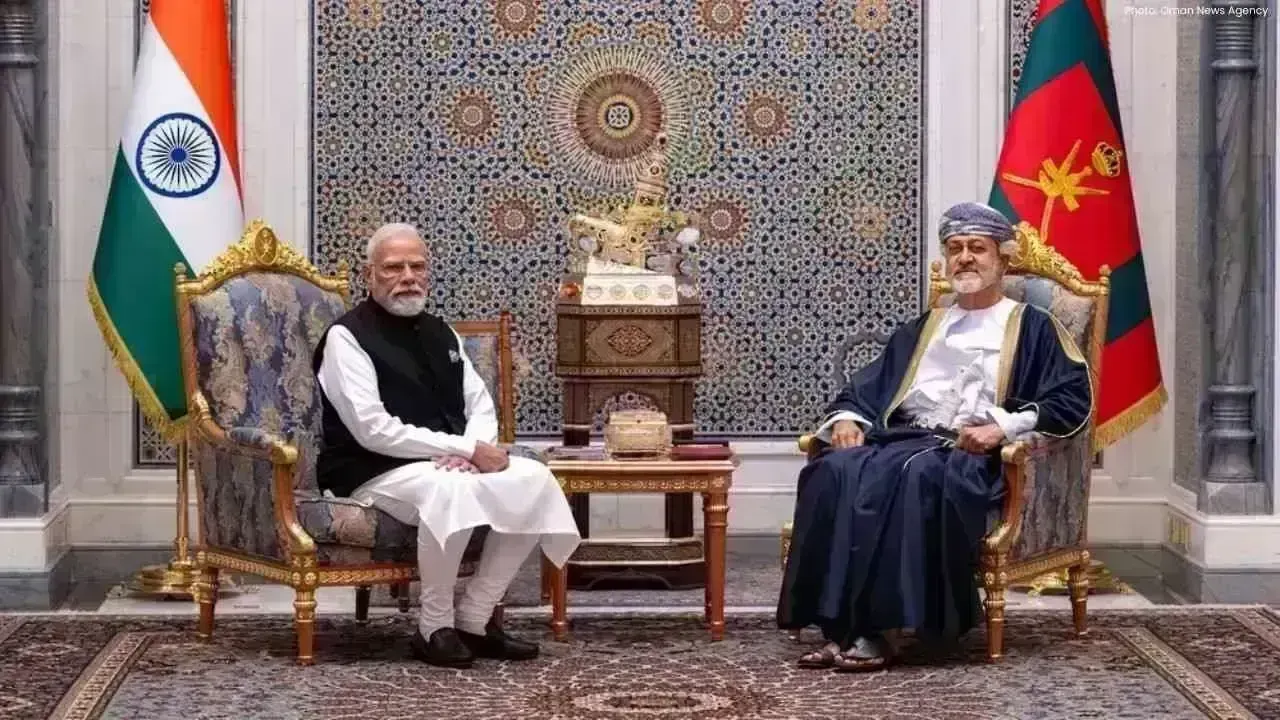
Post by : Vansh Kumar
The global economy is experiencing unprecedented transformation, fueled by rapid technological advancements and the expansion of international trade. Understanding how technology and trade are driving economic change is essential for businesses, policymakers, and investors seeking to capitalize on emerging opportunities and navigate the challenges of a dynamic global landscape. By analyzing the key drivers of growth and innovation, we can better comprehend how economies are evolving and why adaptation is critical for sustainable prosperity.
Technology has become a cornerstone of modern economic development. Innovations in artificial intelligence (AI), automation, data analytics, and digital platforms have fundamentally reshaped industries, improved productivity, and created new markets.
AI, in particular, is revolutionizing sectors such as healthcare, finance, logistics, and manufacturing. Companies that leverage AI can optimize operations, anticipate market trends, enhance customer experiences, and reduce costs. Automation and robotics increase efficiency in production lines, allowing businesses to scale rapidly and meet global demand.
Digital platforms also play a crucial role in democratizing access to services. E-commerce, fintech, and telecommunication innovations connect businesses and consumers worldwide, enabling seamless transactions and financial inclusion. These technological advancements not only stimulate domestic economies but also strengthen a country’s position in the global markets.
International trade has long been a driver of economic growth, providing businesses with access to larger markets, diversified revenue streams, and resources. By expanding exports and imports, countries can specialize in industries where they have a comparative advantage, boosting efficiency and competitiveness.
Trade agreements, free trade zones, and cross-border partnerships encourage investment and economic collaboration. The rise of digital trade platforms and e-commerce has further accelerated the flow of goods and services, enabling businesses of all sizes to participate in international markets.
Global markets benefit from increased trade by fostering competition, innovation, and technology transfer. Countries that actively engage in international trade often experience higher economic growth rates, job creation, and improved standards of living for their populations.
Emerging economies are increasingly influencing the trajectory of global economic change. With growing populations, rising middle-class incomes, and rapid urbanization, these countries offer significant opportunities for investment and trade.
Emerging markets are embracing technological innovation to leapfrog traditional infrastructure barriers. Mobile banking, fintech solutions, and e-commerce platforms are expanding financial inclusion, empowering entrepreneurs, and stimulating economic activity. Investments in renewable energy, digital infrastructure, and education are also enhancing productivity and resilience, positioning these markets as key players in the global economy.
The synergy between technology and trade is reshaping economic landscapes. Digital innovations streamline supply chains, improve logistics, and reduce transaction costs, making international trade more efficient and accessible.
Technological advancements also enable businesses to enter global markets with minimal investment in physical infrastructure. Cloud computing, digital marketing, and online platforms allow companies to reach customers worldwide, fostering competition and innovation. This intersection creates a dynamic ecosystem where businesses can scale rapidly, contributing to economic growth and development.
Governments play a critical role in harnessing the benefits of technology and trade. Policies that support research and development, infrastructure investment, and international collaboration enable businesses to thrive in competitive markets.
Regulatory frameworks must balance innovation with security, consumer protection, and fair competition. Trade policies, tariffs, and investment incentives can influence how businesses operate and expand internationally. By fostering an environment conducive to technological adoption and global trade, policymakers can accelerate economic growth and strengthen resilience against market disruptions.
Sustainability is becoming a central consideration in economic development. Companies and governments are increasingly adopting environmental, social, and governance (ESG) principles to ensure long-term prosperity.
Technological innovations, such as renewable energy, smart grids, and resource-efficient manufacturing, reduce environmental impact while enhancing productivity. Trade policies that encourage sustainable practices can also promote ethical sourcing, reduce carbon footprints, and foster global cooperation on climate initiatives. By integrating sustainability with economic strategy, countries can ensure that progress benefits both people and the planet.
While technology and trade drive economic change, they also present challenges. Rapid technological adoption can disrupt labor markets, creating the need for workforce reskilling and adaptation. Global trade exposes economies to market volatility, geopolitical tensions, and supply chain risks.
To mitigate these risks, businesses and policymakers must adopt proactive strategies. Investment in education, digital literacy, infrastructure, and risk management enhances resilience and ensures that economies can adapt to evolving conditions. By addressing challenges thoughtfully, nations can leverage technology and trade to drive sustainable economic growth.
Looking ahead, technology and trade will continue to shape the global economic landscape. AI, automation, blockchain, and other innovations will redefine industries, enhance efficiency, and create new opportunities for wealth creation.
Global markets will become increasingly interconnected, while emerging markets will play a pivotal role in driving economic growth. Policymakers, businesses, and investors must remain agile, embrace innovation, and adopt sustainable practices to thrive in this evolving environment.
The content in this article is intended for informational and educational purposes only. While every effort has been made to ensure accuracy, economic conditions, market trends, and technological developments are constantly evolving. Readers are encouraged to conduct their own research and consult professional advisors before making financial, business, or investment decisions. GCC news network is not responsible for any outcomes resulting from the use of this content.










Globe Soccer Awards 2025 Finalists Include PSG and Cristiano Ronaldo
GLOBE SOCCER Awards 2025 finalists are out after 30 million fan votes, with PSG stars, top clubs and

Google Gemini Web App Adds Opal Tool for Building Mini AI Apps
Google adds Opal to Gemini web app, letting users make mini apps called Gems using simple prompts wi

Shraddha Kapoor Praises Crew Behind Dhurandhar Film Success
Shraddha Kapoor praises the unseen technicians of Dhurandhar, lauds director Aditya Dhar, and calls

Truecaller Launches Free AI Voicemail with Spam Protection for Android
Truecaller launches free AI voicemail for Android in India with instant transcription, spam protecti

FIFA Confirms First Women’s Club World Cup Scheduled for 2028
FIFA announces the first Women’s Club World Cup in January 2028 with 16 teams, group stages, and glo

Buck Rogers Star Gil Gerard Dies at 82 After Cancer Battle
Gil Gerard, famous for playing Buck Rogers, has died at 82 after cancer. He was known for his sci-fi